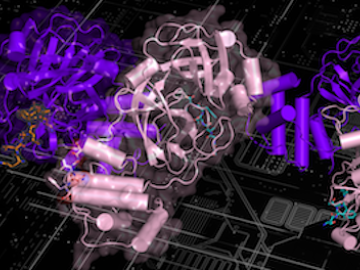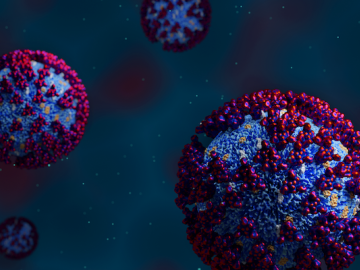Filter News
Area of Research
News Type
News Topics
- (-) Coronavirus (3)
- 3-D Printing/Advanced Manufacturing (5)
- Advanced Reactors (1)
- Artificial Intelligence (7)
- Big Data (1)
- Bioenergy (15)
- Biology (26)
- Biomedical (3)
- Biotechnology (3)
- Buildings (2)
- Chemical Sciences (13)
- Clean Water (3)
- Climate Change (16)
- Composites (3)
- Computer Science (5)
- Critical Materials (3)
- Cybersecurity (2)
- Decarbonization (11)
- Energy Storage (14)
- Environment (26)
- Exascale Computing (2)
- Frontier (3)
- Fusion (1)
- Grid (4)
- High-Performance Computing (8)
- Hydropower (5)
- Isotopes (2)
- Machine Learning (5)
- Materials (26)
- Materials Science (10)
- Mercury (1)
- Microscopy (9)
- Nanotechnology (7)
- National Security (2)
- Net Zero (1)
- Neutron Science (5)
- Nuclear Energy (1)
- Partnerships (4)
- Physics (5)
- Polymers (4)
- Quantum Science (2)
- Security (1)
- Simulation (2)
- Summit (2)
- Sustainable Energy (11)
- Transformational Challenge Reactor (1)
- Transportation (2)
Media Contacts

A new paper published in Nature Communications adds further evidence to the bradykinin storm theory of COVID-19’s viral pathogenesis — a theory that was posited two years ago by a team of researchers at the Department of Energy’s Oak Ridge National Laboratory.

Researchers from ORNL, the University of Tennessee at Chattanooga and Tuskegee University used mathematics to predict which areas of the SARS-CoV-2 spike protein are most likely to mutate.

Five technologies invented by scientists at the Department of Energy’s Oak Ridge National Laboratory have been selected for targeted investment through ORNL’s Technology Innovation Program.




